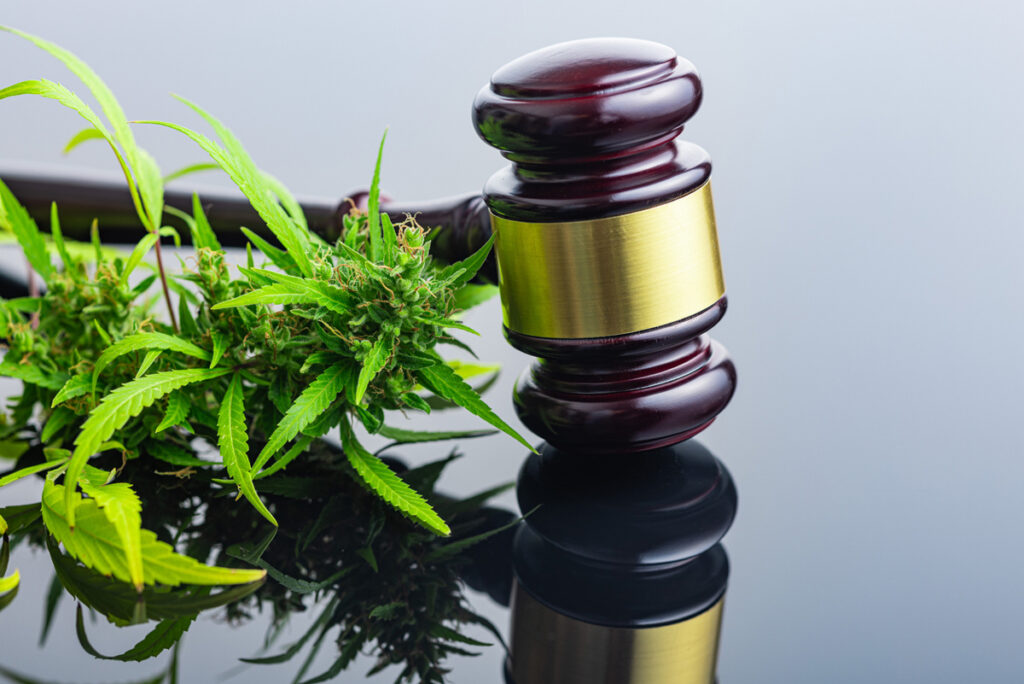
A RECENT U.S. Supreme Court decision has increased the legal exposure of cannabis companies by allowing civil lawsuits under the federal Racketeer Influenced and Corrupt Organizations Act to move forward based on product-related business injuries. The 5-4 ruling in Medical Marijuana Inc. v. Horn will allow a commercial truck driver’s lawsuit against Medical Marijuana Inc. and affiliated companies to proceed under RICO after he was fired for failing a drug test. Horn alleged he used a CBD tincture, Dixie X, which was falsely advertised as containing no THC — the psychoactive compound in cannabis. A laboratory test later confirmed the product did, in fact, contain THC. For cannabis businesses, the implications are far-reaching.
A new front for liability Originally designed to fight organized crime, RICO permits private parties to sue for triple damages if they can show they suffered a business or property injury due to a “pattern of racketeering activity,” which can include mail and wire fraud or violations of federal drug laws. Driver Douglas Horn’s lawsuit alleged that Medical Marijuana Inc. and its associated entities violated the Controlled Substances Act and engaged in fraudulent advertising and distribution practices. While a federal trial judge initially dismissed the case, the Second Circuit Court of Appeals reversed that decision — and now, the Supreme Court has upheld that reversal, paving the way for the case to proceed to trial.
Justice Amy Coney Barrett, writing for the majority, stated that Horn’s loss of employment qualified as a harm to “business or property” under RICO’s language. “Medical Marijuana is left fighting the most natural interpretation of the text — that ‘injured’ means ‘harmed’,” Barrett wrote. This interpretation could embolden future plaintiffs to bring similar suits against cannabis companies, not only for mislabeling or contamination but for any claims where economic loss can be traced to alleged racketeering activity.
The fallout
As a result of the ruling, several key risks now loom for the industry:
Product labeling and testing. Firms must ensure all THC and CBD concentrations are accurately stated and rigorously tested by reputable third-party labs. In Horn’s case, an independent test showing the presence of THC was central to his claim.
Marketing practices. Any mention that a product is “THC-free” or “legal under federal law” must be backed by concrete evidence. Plaintiffs may argue that promotional materials, even if only negligently inaccurate, amount to wire or mail fraud.
Employment-related injuries. Horn’s firing due to a failed drug test was deemed an injury to his livelihood, making it a qualifying harm under RICO. This sets a precedent that could extend to other industries with drug-free workplace policies.
Reassess Product Claims and Compliance Procedures
The takeaway For cannabis operators, this decision is a wake-up call. RICO claims were once seen as unlikely in civil cases against cannabis companies — but that door is now open. The ruling effectively places cannabis firms, already navigating a complex regulatory patchwork, at risk of severe civil penalties for lapses in compliance.
Businesses in the cannabis space should:
• Reassess product claims and compliance procedures
• Review all advertising and labeling with legal counsel
• Establish stronger quality control and recall protocols
• Ensure contracts with suppliers and marketers have indemnity clauses for mislabeling or regulatory violations.
